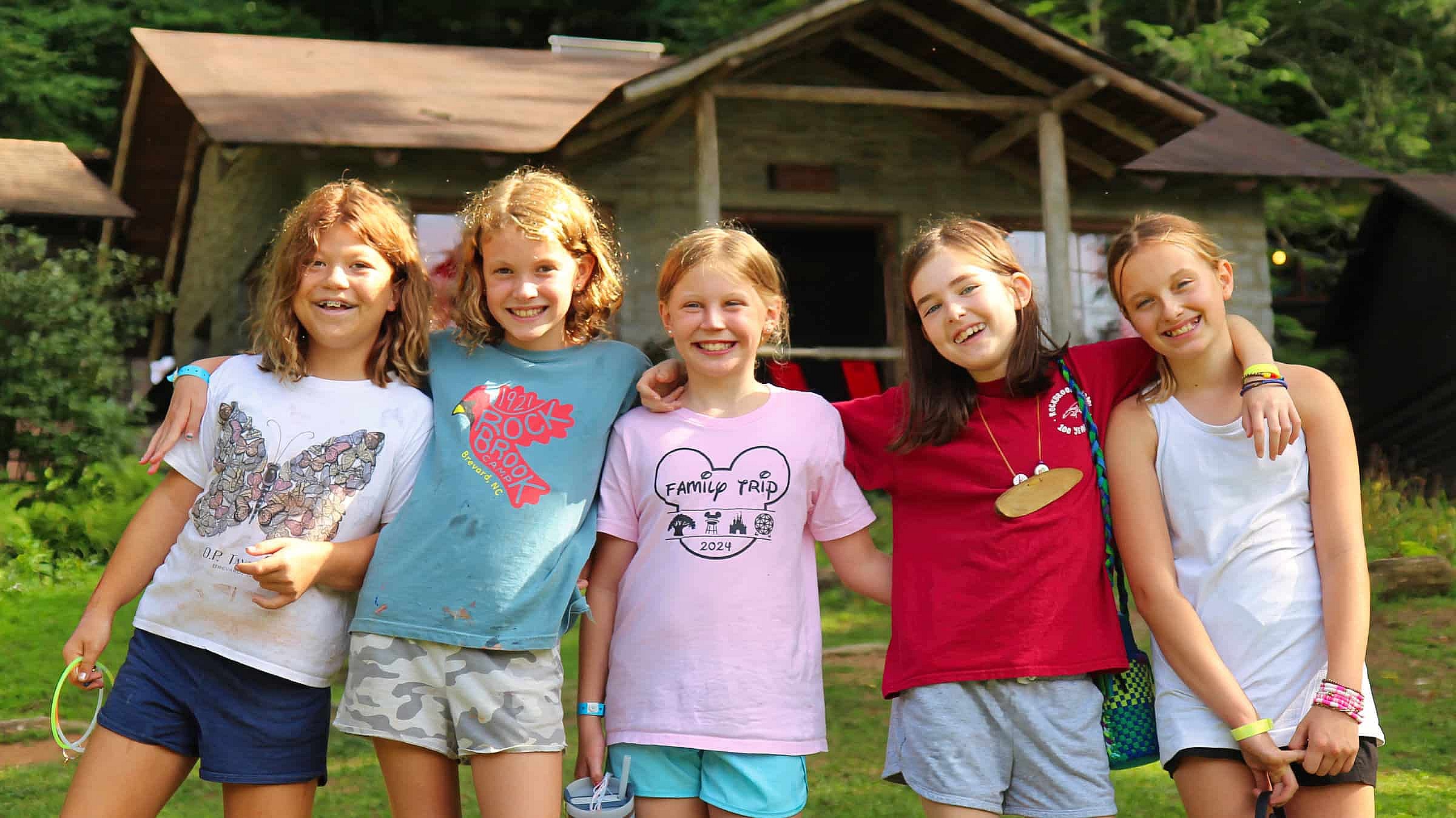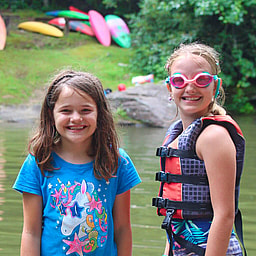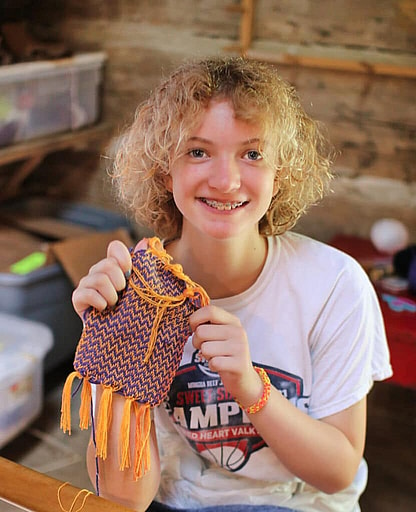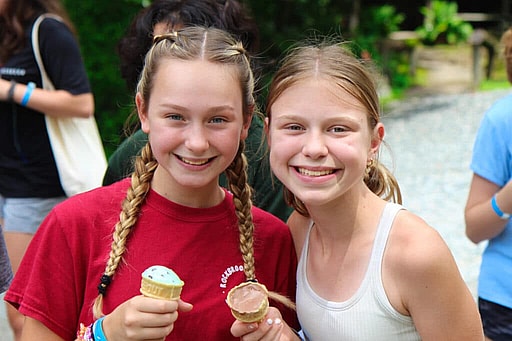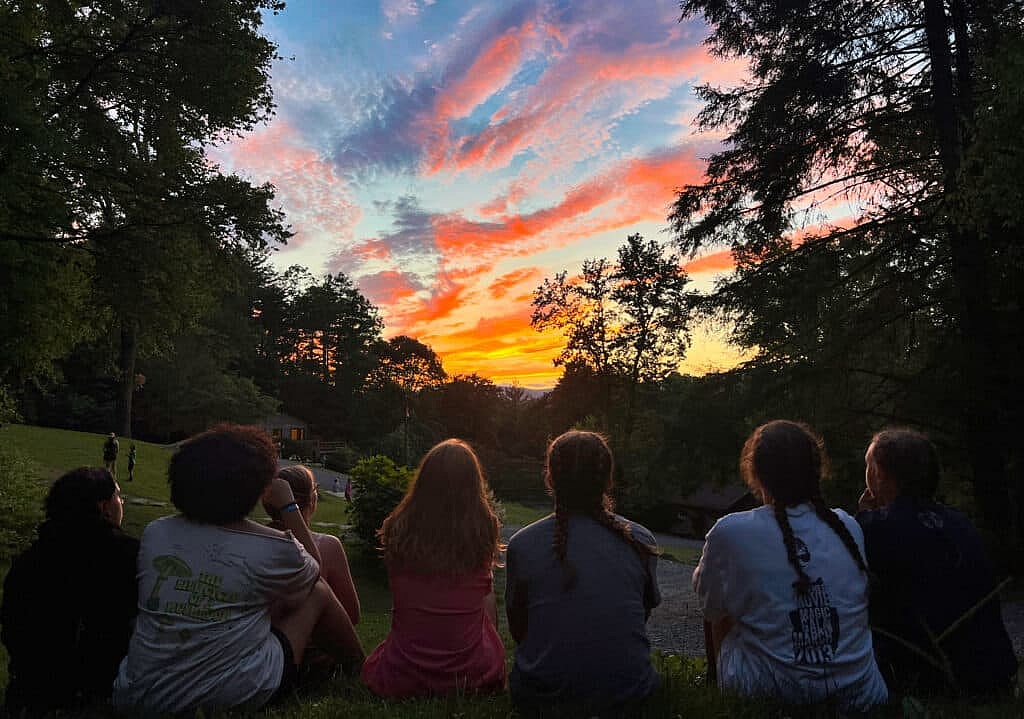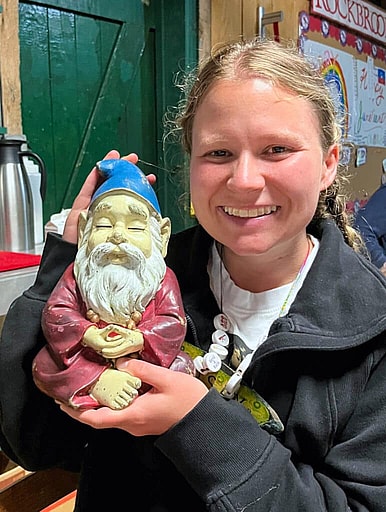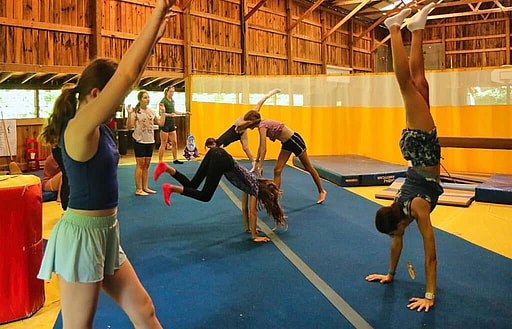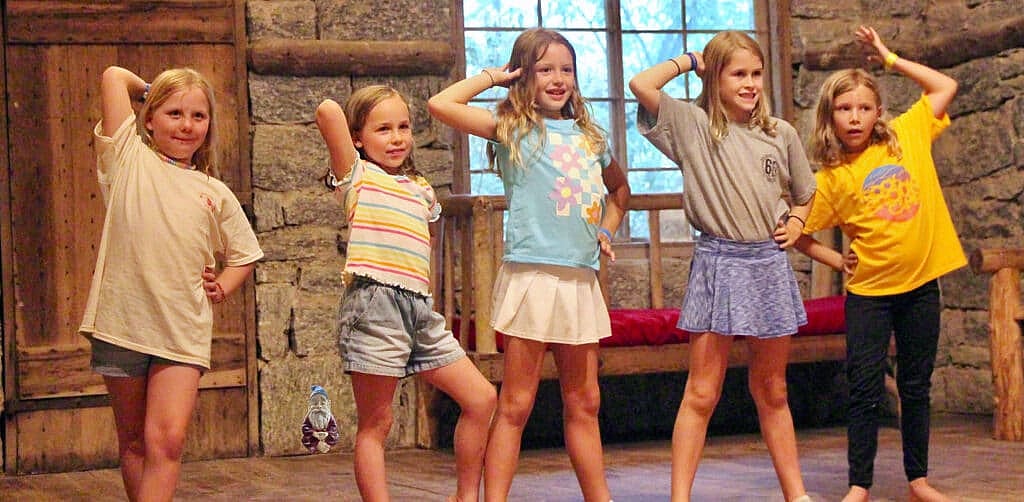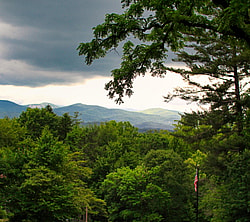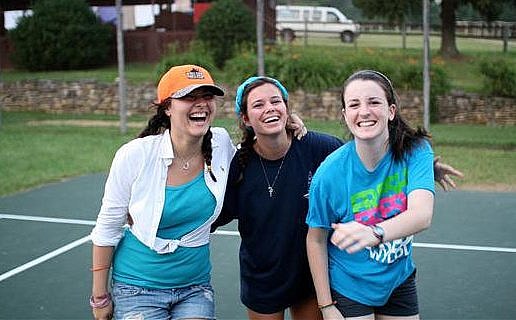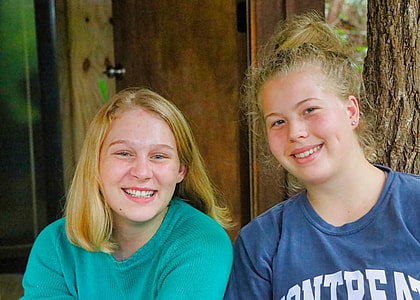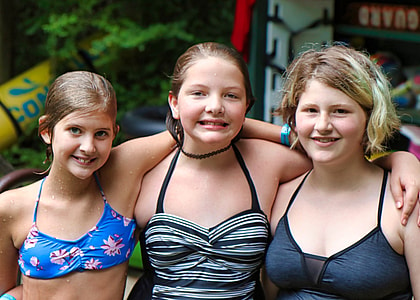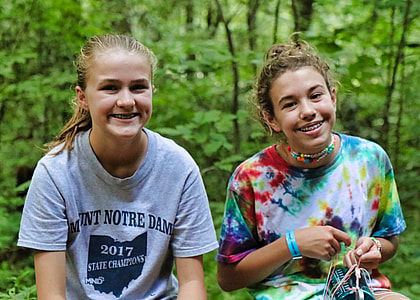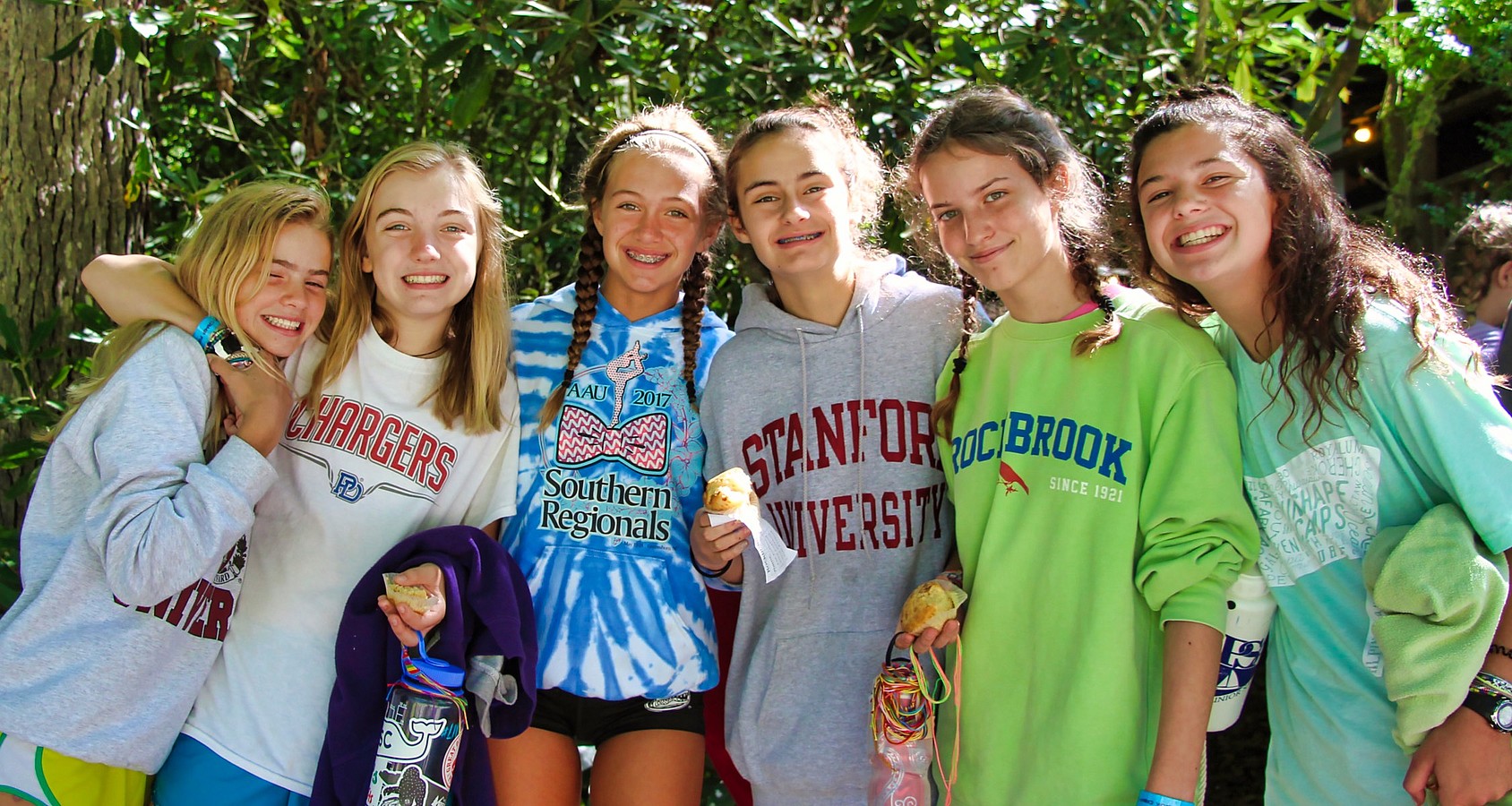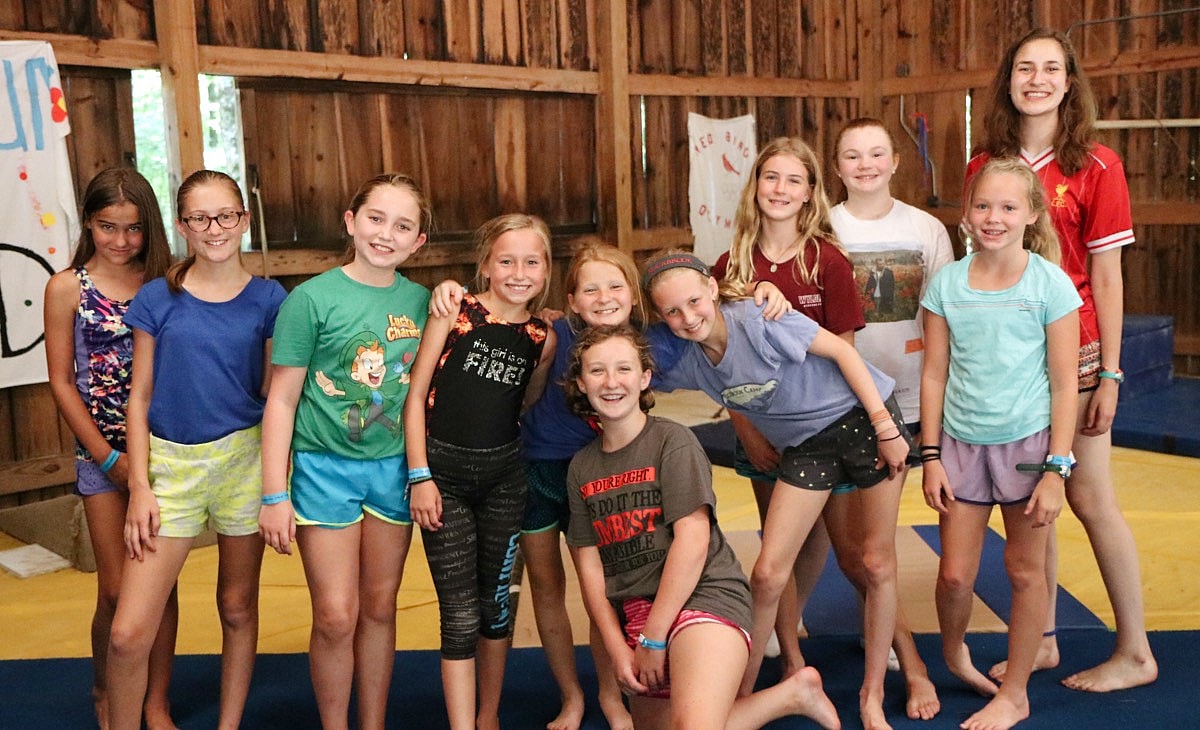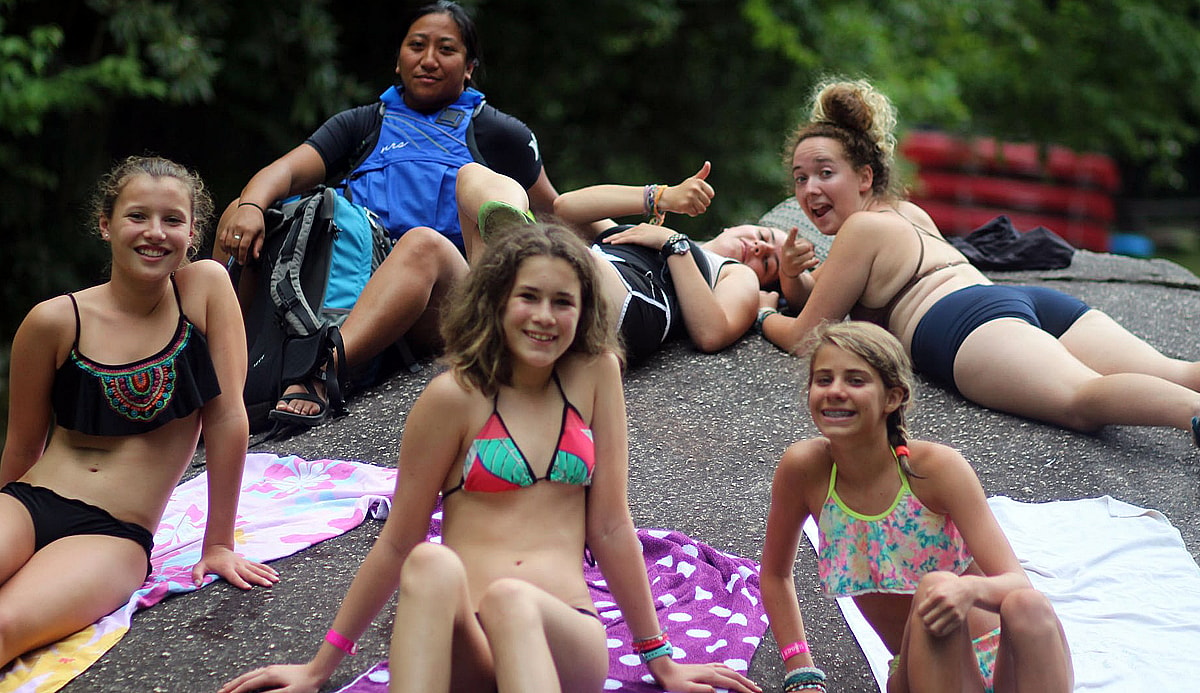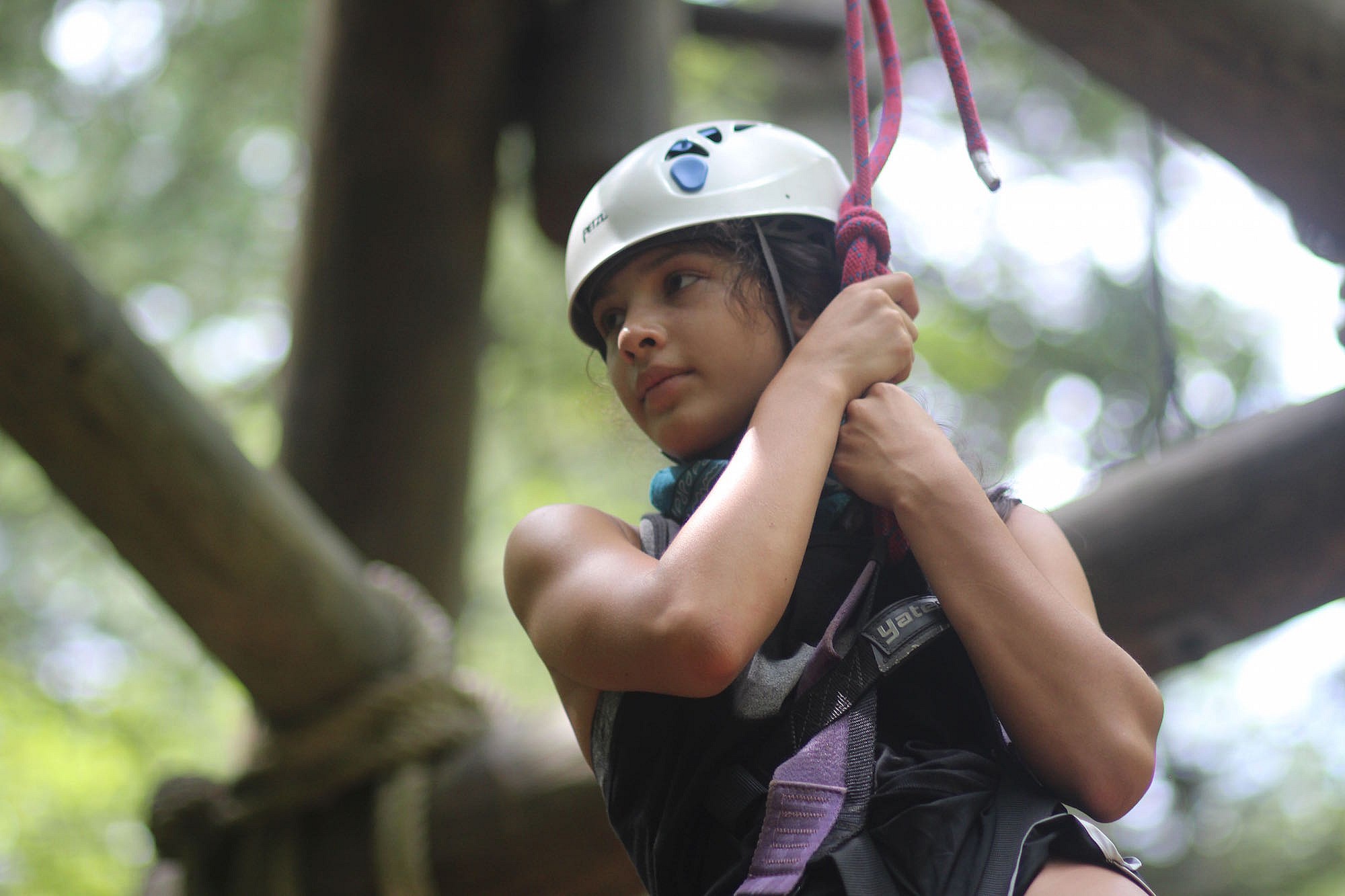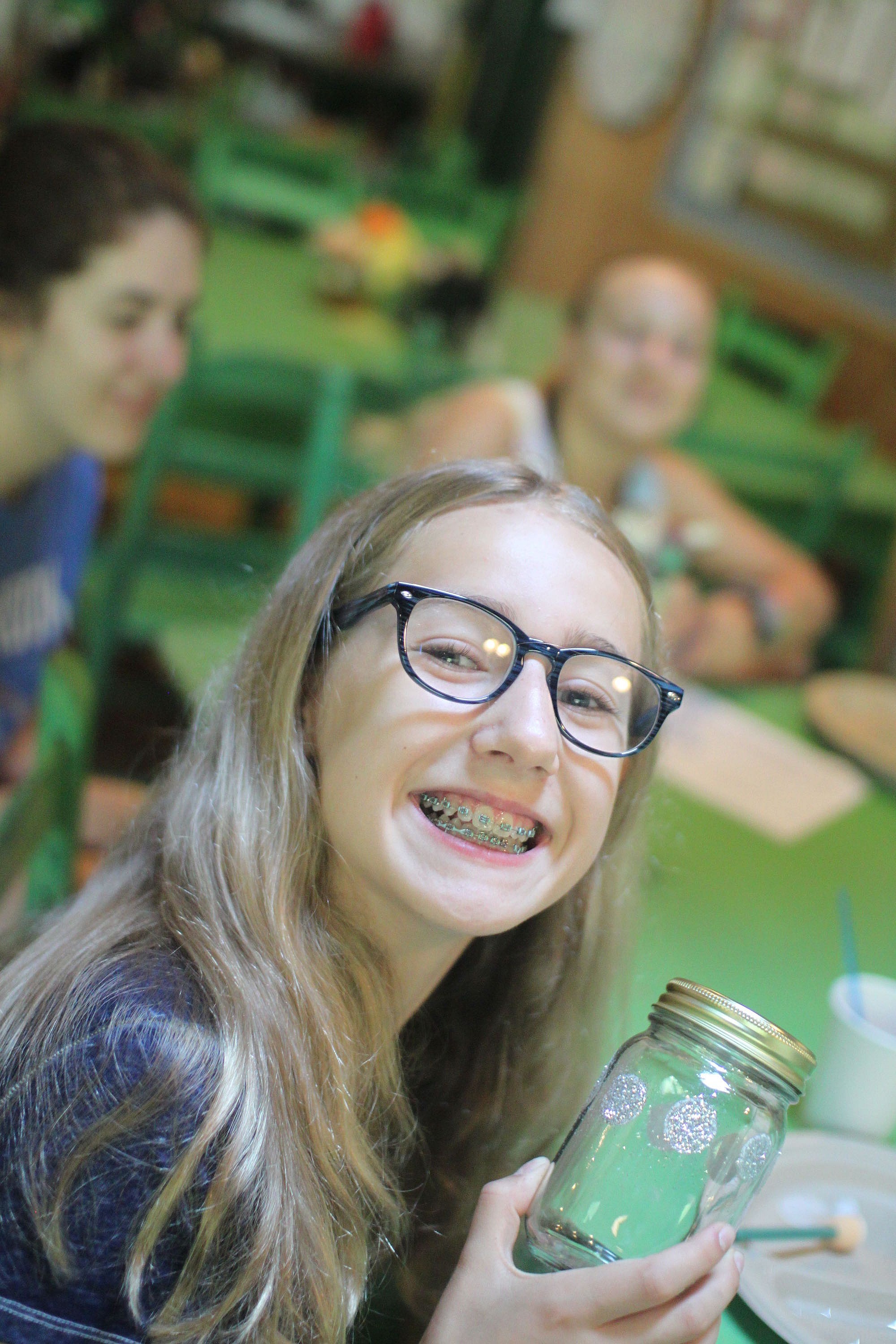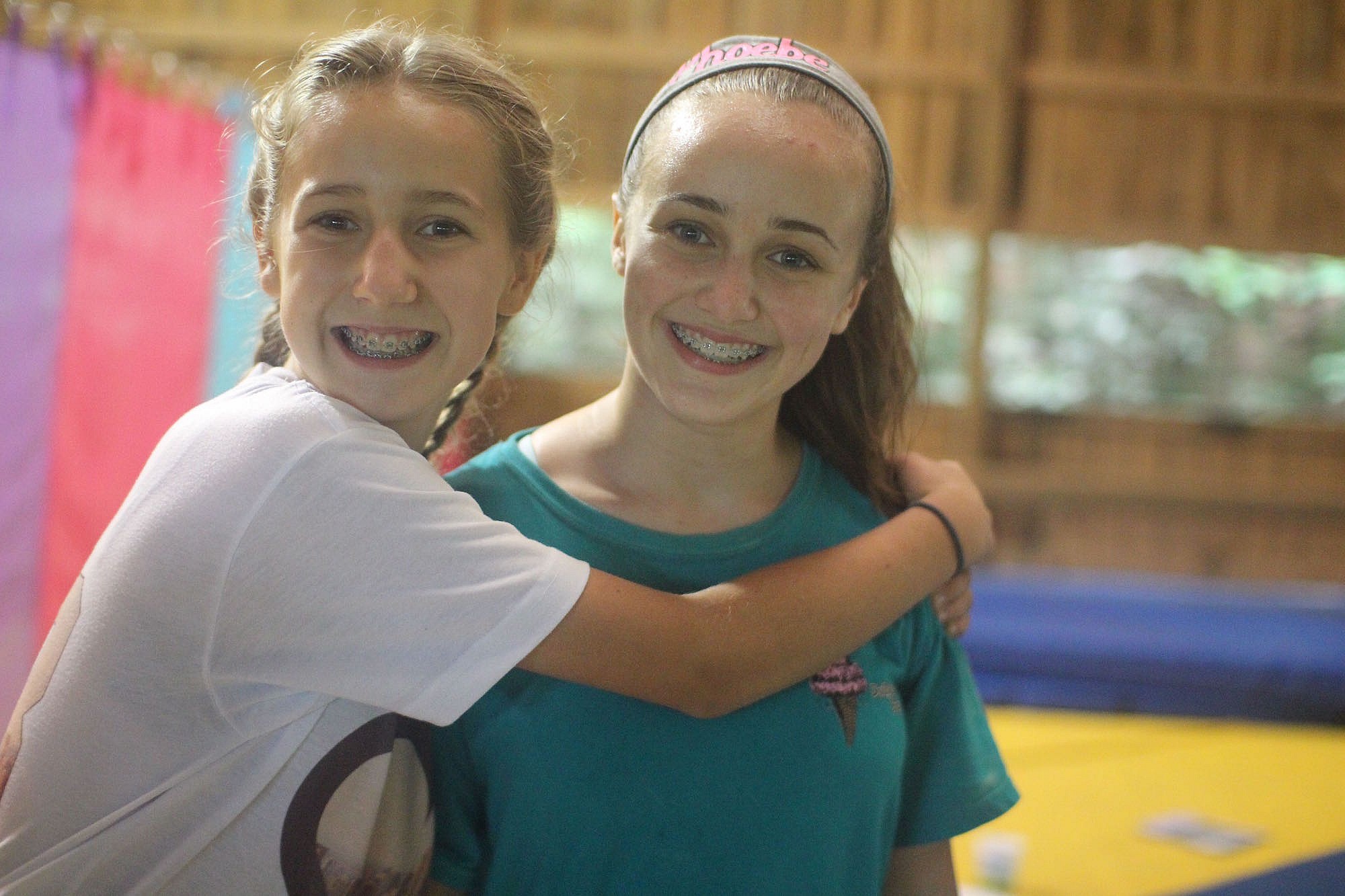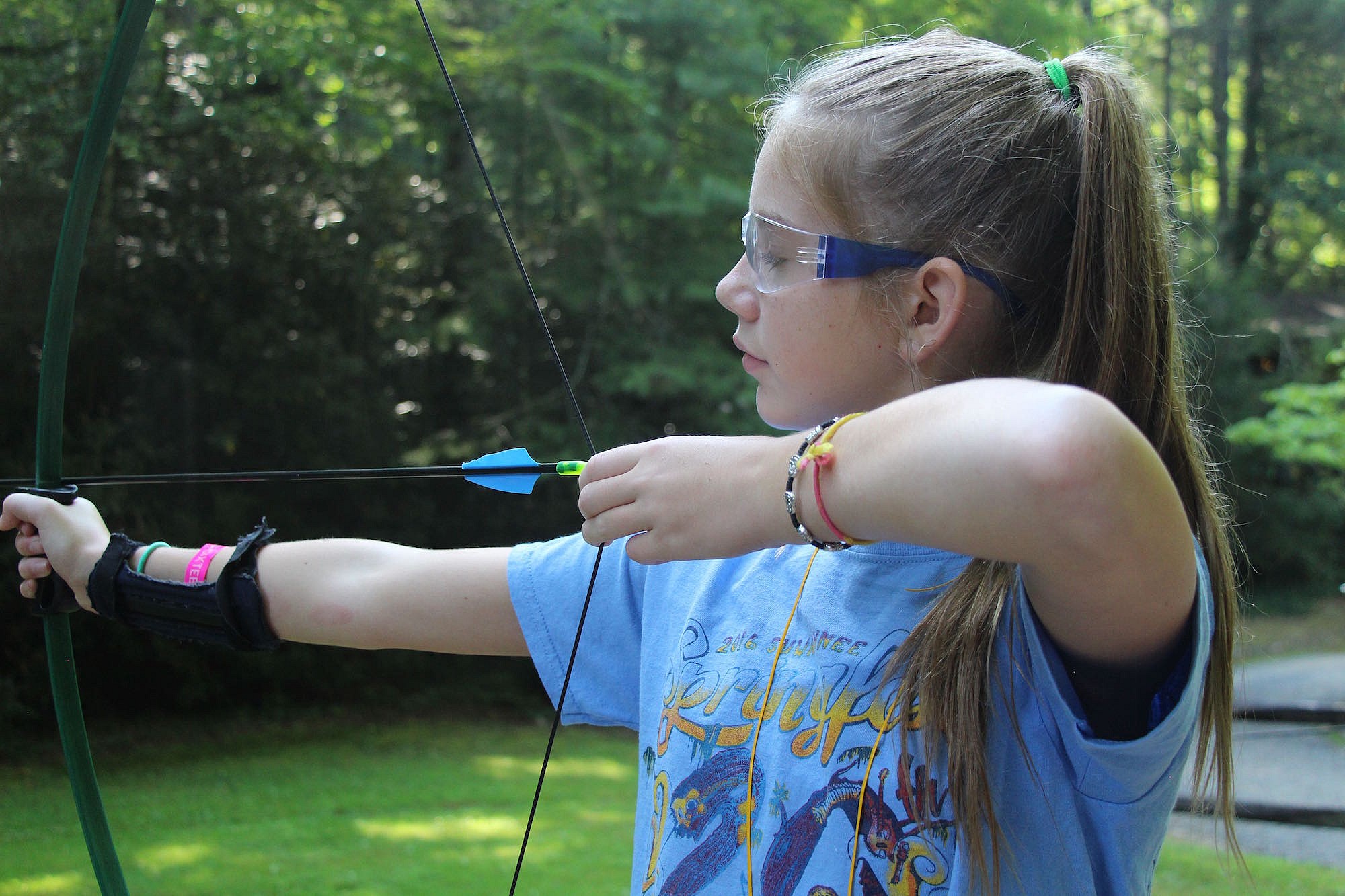What’s the difference between camp and school? That’s the question I asked a few campers today as I wandered around camp. You might think that’s like asking what’s the difference between chocolate cake and canned peas, but there’s more to it than just one’s “fun” and the other is “work.” You might also think that these Rockbrook girls wouldn’t have much to say about this, but oh no. They went on and on about what they loved about camp and how it was very different from life at school. They had immediate answers, and some were very thoughtful.
A few of the campers answered with differences about what you do at camp. “At camp I get to ride horses.” “School stops after 8 hours, but we live at camp 24 hours a day.” “At camp I’m outside all the time.” “There are no parents here.” “At camp I have more free time to do what I want.” All true! A sleepaway camp like Rockbrook provides all of these experiences. It offers all of the activities you see on the website, the adventure, crafts, sports and horseback things that girls love to do. They enjoy doing so many outdoor things that are not available at most schools— zipping down the waterslide and through the trees on the zipline course, shooting archery, playing in the creek, and riding horses. And yes, at camp the girls are living together away from their parents, making decisions for themselves, navigating new challenges and experiences without a helicopter or a snowplow to assist. We don’t schedule every minute at camp, allowing the girls more freedom to explore, to meander, and follow their interests. All of this empowers them far more than what school, with its sit-still culture, will allow.
A common answer from the older campers I polled was, “At camp nobody has a phone.” One continued, “and that’s a good thing because we’re not distracted and we can really connect with people.” I love this answer! While there are some schools that have restricted, even banned, phone use, the majority of teenagers are spending hours of their day scrolling through TikTok and Instagram. Instead of the real world, with all its messy, sometimes uncomfortable, yet rich and interesting nuances, kids are learning about life through corporate algorithms, sensationalized media, and sanitized snippets. Instead of helping them connect with each other, their smartphones are making them lonelier and more anxious, as Jonathan Haidt has recently written. And kids feel this inherent dissatisfaction when they only have electronic solutions to boredom. Being camp kids, they know it’s not good for them to be on their phones and screens a lot. One camper even said it; “I wish there were no phones at school.” Haidt argues for exactly that— banning phones in school. There’s a lot of evidence pointing to how that would help our kids. Tremendously.
Several campers answered my question by saying, “At camp there’s no social pressure to be someone you’re not.” And, “Rockbrook allows you to be your true self without the fear of being judged.” “Here you have the freedom to express yourself.” School, with its standards, evaluations, and grades, is inherently a competitive and judgmental place where kids must strive for academic achievement, and perform for social recognition. Every school has social cliques that beg the question of who belongs and who doesn’t. Camp is the other way around; “it’s a welcoming and accepting place,” as one camper put it. The people at camp are more supportive and encouraging. Their kindness comes through as acceptance, no matter your looks, smarts or talents. Camp kids feel like they belong, like they’re included, each and every one a part of this community. Camp sets a tone that rises above the uncertainty of self-confidence that defines many school environments.
A counselor put it this way, “At camp I have nothing to worry about.” More than basic necessities, I think she meant social worries, doubts about belonging, fears about not measuring up, concern over being valued despite one’s flaws. None of this is clear at school. In fact, a child’s school experience is often marked by concerns of self worth, plagued by questions like, “Am I smart enough?” “Do people like me?” “Who are my friends?” At Rockbrook, those questions simply don’t come up because everyone is treated kindly, is accepted and included from the very first day. No worries!
Another camper answered this question about comparing camp and school by simply noting, “people are happy here.” That might be the biggest difference, and perhaps the true consequence of all the other differences. Kids are happier at camp because they get to do a lot of cool, exciting things, their days filled with surprises and treats that no school can match. Instead of being rushed and overly scheduled, they’ve got time to relax and explore things as they desire. And they’re also away from their technology, interacting closely with other kids and the wonders of the real world. They’re happier because they don’t have to worry about being judged, being included, or having friends who care about them. At camp, they’re not lonely, they’re engaged. They’re clapping their hands and singing, being as silly as possible with unbridled joy. There’s no doubt; Kids love camp.
For everyone I asked, the differences were clear. “Camp life is the best life,” they said with real conviction. School, not so much. Sadly for many kids, school is too often an unhappy place defined by academic and social pressures, anxious feelings, with limited outlets beyond the broken promises made by smartphones. “If only school could be more like camp,” one camper wistfully imagined. I believe it can be, and there are certainly good schools striving to create a similar kind of haven for kids. Meanwhile, there’s Rockbrook: a delightful community where your girls can grow and flourish in the most marvelous ways.






